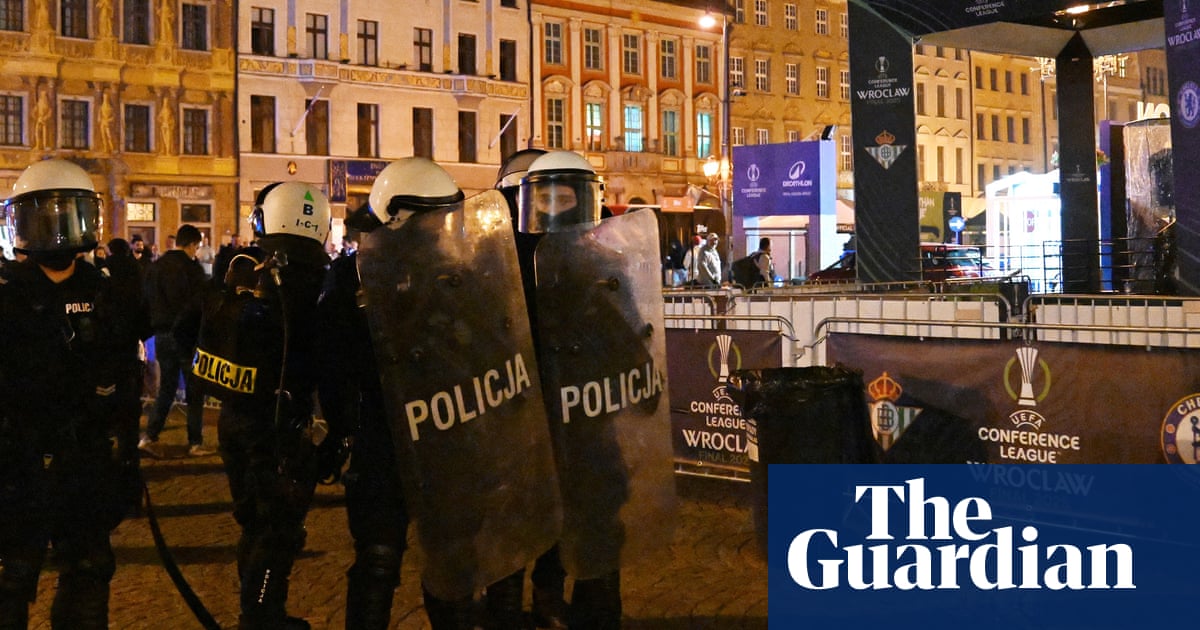Riot police in the Polish city of Wroclaw deployed a water cannon on Chelsea andReal Betissupporters after trouble broke out before the Uefa Conference League final.
The two sets of supporters were involved in clashes on Tuesday night, leading to some Spaniards being detained, and on Wednesday afternoon. The atmosphere in the city centre was tense in the hours before the game, with police and officers in military clothing deployed to restore order after clashes in bars near the market square. There were 28 arrests made.
Donald Tusk, the Polish prime minister, warned supporters that police would be “even more ruthless” if further violence took place. “Zero tolerance for violence on our streets!” Tusk wrote on X. “I thank the police for their decisive actions against the hooligans inChelseaand Betis shirts in Wrocław. We warn you: if necessary, the police will be even more ruthless today!”
The local authorities were forced to act after bottles and smoke bombs were thrown by groups of rivals fans, forcing police with shields to move in to keep people apart. Water cannon was used and videos of fans throwing chairs and beer mugs at each other were circulated on social media.
One man, who was wearing a Chelsea badge and appeared to have a Chelsea tattoo on his leg, was seen bloodied after being involved in an altercation with apparent Betis supporters. One photograph showed the man being attacked by a belt-wielding assailant.
There were also interventions on Tuesday night after trouble erupted. Footage on social media showed police using pepper spray on Chelsea supporters.
The Gazeta Wroclawska reported that a brawl happened at about 11pm in the city’s market square, leaving it resembling “a battlefield” before the mess was cleaned up overnight. The Polish outlet reported that four Spanish supporters were detained by police on Tuesday. Officers were searching for nine other supporters involved in brawls.
Sign up toFootball Daily
Kick off your evenings with the Guardian's take on the world of football
after newsletter promotion
“The uniformed officers reacted immediately after the incident, which prevented further escalation of the conflict and negative behavior,” said Senior Constable Lukasz Dutkowiak from the provincial police headquarters in Wroclaw.Anna Zabska, the governor of Lower Silesia, said: “We strongly condemn the violent behaviour of hooligans involved in today’s street disturbances in Wrocław. Such actions have no place in sport or public life. Police have acted swiftly, and all responsible will face legal consequences. Public safety remains our top priority.”
